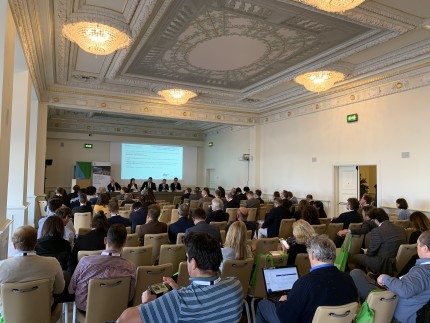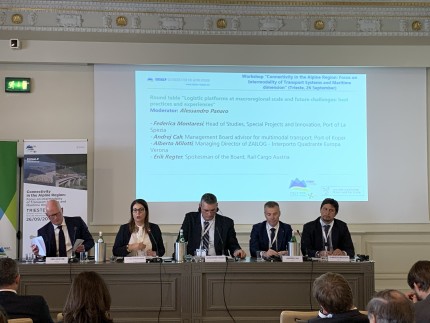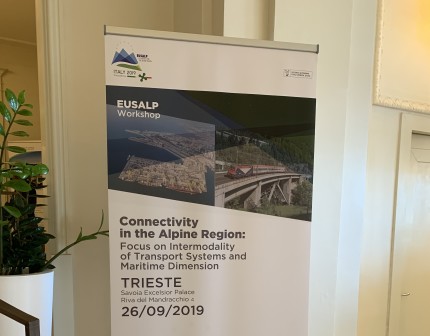The COMODALCE project presented at the EUSALP Workshop on Connectivity in the Alpine Region
26th September 2019
In the framework of the EUSALP Italian Presidency 2019, on Sept. 26th 2019 the Friuli Venezia Giulia Region, with the support of the Port of Trieste, LP of the COMODALCE project, organized the Workshop “Connectivity in the Alpine Region – focus on intermodality of transport systems and maritime dimension”.
The morning session was devoted to freight transport.
After a keynote speech by Mr. Julián Espina, Project officer at INEA, on funding opportunities for transport projects and Mr. Alessandro Panaro, Head of Maritime & Energy Research Area – SRM Italian Research Center for Economic Studies, on intermodal connections and the ports system in EUSALP, a round table followed on “Logistic platforms at macroregional scale and future challenges: best practices and experiences”.
Significantly, three out of the four panelists represented three COMODALCE project partners: the Port of La Spezia, Luka Koper and the Rail-Road Terminal of Verona.
The discussion centered on infrastructural and non-physical bottlenecks still hampering the full-fledged development of intermodal transport in EUSALP and possible solutions and best practices which could be applied.
In particular, Mrs. Montaresi from the Port of La Spezia, who also sits in the Digital Transport Logistic Forum (DTLF) described the content of the COMODALCE project and expected outputs as a best practice of well as the transnational cooperation among partners South and North of the Alps.
Indeed, ICT tools such as the ones to be developed within the COMODALCE project were identified by all panelists as essential tools to optimize the use of existing infrastructures and to create more competitive and efficient transnational supply chains, thus supporting modal shift from road to rail through the digitalisation of transport documents.
COMODALCE is fully in line with the current and future work plan of the EUSALP Action Group no. 4 on transport and mobility.
The Workshop was attended by more than 100 participants, gathering public policy makers and private stakeholders from the whole Alpine Area and beyond.



